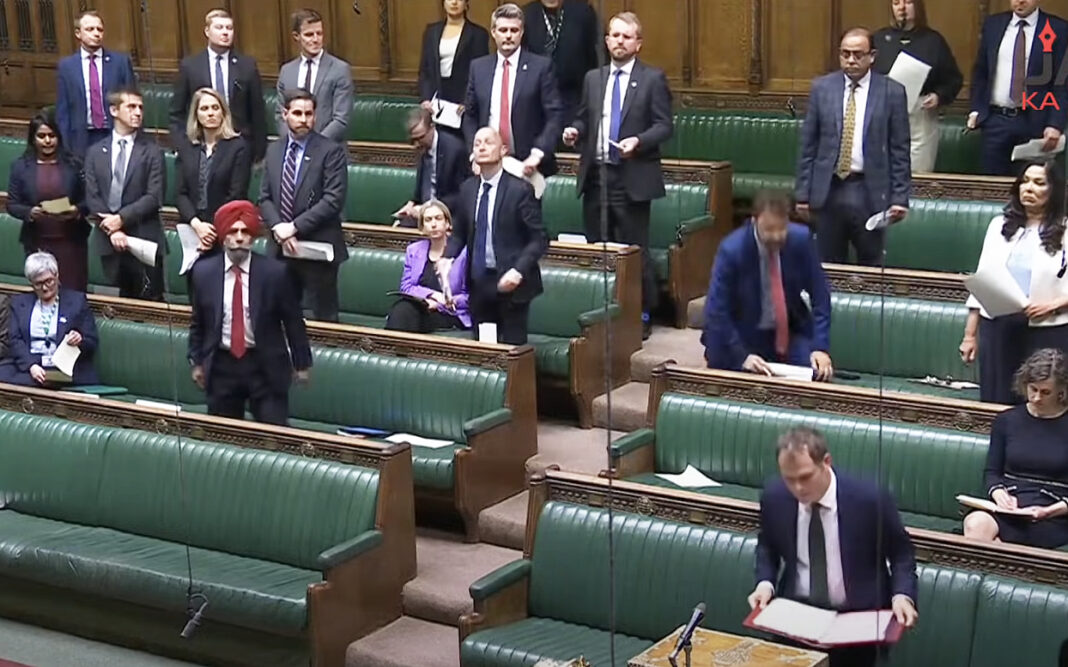Once considered one of the most influential and respected broadsheets in the English-speaking world, The Daily Telegraph has, in recent years, undergone a profound editorial transformation—one that has all but obliterated its reputation for objective journalism.
Long a bastion of British conservatism and establishment opinion, the paper has now emerged as a consistent and often uncritical amplifier of Zionist and Israeli state narratives.
This development has far-reaching consequences not just for British media, but for public understanding of one of the most volatile and consequential regions in the world.
From Newspaper of Record to Political Tool
Founded in 1855, The Telegraph was for much of its history a pillar of British media—celebrated for its investigative reporting, international coverage, and influence over the public debate. But its legacy has been eroded by an ideological drift that has turned it into a vehicle for narrow political interests, especially in the context of Israel-Palestine coverage.
Its early reporting from the Middle East, while certainly shaped by imperialist assumptions, at least bore the hallmarks of journalistic diligence. But over the decades, and particularly in the last twenty years, that approach has been replaced by an editorial policy that appears to prioritize advocacy over accuracy.
From the King David Hotel to the Nakba: A Skewed Perspective
As far back as 1946, following the Irgun bombing of the King David Hotel, The Telegraph focused more on British loss and political implications than the broader terror campaign by Zionist militias. In 1948, during the Nakba, the displacement of over 700,000 Palestinians received little empathetic attention; instead, the focus remained on the creation of the Israeli state and its geopolitical implications.
Such coverage laid the groundwork for a pattern of reporting that increasingly ignored Palestinian suffering and consistently aligned with Israeli state interests.
Gaza 2024–2025: A Case Study in Editorial Capture
During the most recent Gaza war, The Telegraph again distinguished itself—not through independent reporting, but through parroting the Israeli government’s framing. It ran headlines that questioned casualty figures from Palestinian sources while emphasizing Israeli victimhood. One notable article dismissed Hamas’s claim that 70% of Gaza’s dead were women and children as “demonstrably false”—a term loaded with ideological intent but lacking transparency in sourcing.
The paper simultaneously launched an aggressive campaign against the BBC, accusing it of over 1,500 breaches of editorial standards in its Gaza coverage, painting itself as the lone beacon of truth amid a supposedly biased media landscape. But critics argue that this self-righteous stance masks a much deeper problem: The Telegraph is no longer a neutral actor in the conflict. It is, increasingly, a partisan organ in Israel’s global information war.
The Beirut Airport Fabrication
In June 2024, The Telegraph published an anonymously sourced article accusing Hezbollah of hiding weapons inside Beirut’s international airport. The piece sparked international outrage and was swiftly discredited after Lebanon’s transport minister opened the airport for inspection by diplomats and journalists. No evidence supported the paper’s claims.
Observers described the article as an example of “narrative laundering”—a tactic where militarized propaganda is seeded through reputable outlets to legitimize potential war crimes, such as bombing civilian infrastructure. Critics said the article could have provided Israel with cover to target Beirut’s airport, just as it had in 2006.
That The Telegraph would publish such a piece without transparent sourcing or editorial restraint is emblematic of its new role: not a newspaper, but a conduit for ideological warfare.
Media Complicity and the Question of Ownership
In recent years, The Telegraph has seen ownership battles that raised alarms about foreign influence and political bias. Dovid Efune, a known pro-Israel media entrepreneur, has emerged as a leading candidate to acquire the paper. His record—defined by zealous defense of Israeli policy—has sparked fears that any remaining editorial independence at The Telegraph could soon vanish entirely.
Even more revealing than the ongoing questions around future ownership is what occurred— or, more precisely, what didn’t occur—during a critical moment in November 2023: a series of secret Israeli briefings with UK media that did not include any public mention of The Telegraph’s involvement.
The Briefings They Didn’t Need
In 2025, a Declassified UK investigation uncovered that Israeli officials—including former IDF Chief Aviv Kohavi—held private meetings with UK media leaders to influence coverage of Gaza. Senior figures from the BBC, The Guardian, FT, and Sky News attended.
Conspicuously absent? The Daily Telegraph.
According to analysts, The Telegraph was not invited because it didn’t need persuading. Its editorial line was already so closely aligned with Israeli interests that lobbying was redundant.
Under editor Chris Evans, who has led the paper since 2014, The Telegraph has repeatedly published op-eds denying Israeli culpability in civilian deaths, accusing critics of antisemitism, and defending Israel’s conduct with unwavering loyalty. Evans’ career—from The Daily Mail to The Telegraph—has been defined by reactionary editorial decisions that serve establishment power and foreign policy orthodoxy.
In 2018, the paper came under fire for a headline describing George Soros’s anti-Brexit funding as a “secret plot”—a move widely condemned as antisemitic. Evans defended the coverage internally, but the incident revealed the ideological tightrope The Telegraph walks when discussing Jewish and Israeli topics: deeply ideological but cloaked in claims of objectivity.
Britain Loses a Voice
Once an essential voice in British journalism, The Telegraph has long crossed the line when it comes to Palestine. Its transformation from a conservative broadsheet to a dependable mouthpiece for Israeli interests reflects a broader collapse in media independence. Britain has lost not just a newspaper, but a historical institution.
And in doing so, it has lost part of the infrastructure that once allowed the public to question power rather than echo it.
As Gaza burns and international scrutiny of Israeli actions intensifies, The Telegraph offers no independent verification, no critical distance—only unwavering repetition of a single narrative.
The result is not journalism. It is complicity.
A Political Turning Point
In May 2025, a seismic political shift unfolded in Britain. For the first time, a growing number of British politicians began to publicly turn against Israel—not out of a newfound moral clarity, but out of fear. Fear that their continued support for Israel’s devastating military campaign in Gaza, which by that point had killed over 35,000 Palestinians, could land them on the wrong side of international law.
An investigation published by Greatreporter on May 7 revealed that members of Parliament were now speaking of potential sanctions, recognising Palestinian statehood, and even invoking the term “ethnic cleansing” to describe the destruction in Gaza. Behind this dramatic U-turn lies a rising awareness of legal culpability. The prospect of international criminal proceedings—potentially even appearances before the Hague—for aiding and abetting crimes against humanity has cast a long shadow over Westminster.
This sudden shift in tone raises critical questions about the media’s next move. If politicians, once steadfast in their support of Israel, are now scrambling to shield themselves from legal consequences, will the UK’s media follow suit? And will The Telegraph, which has spent the past year defending every Israeli airstrike and discrediting Palestinian accounts of suffering, attempt to backtrack in order to preserve what remains of its journalistic credibility?
Given its record, such a pivot seems unlikely. But in a media ecosystem that follows power more than principle, the possibility of The Telegraph rebranding its editorial line to save face cannot be ruled out.
From Fourth Estate to Fifth Column
In the age of hybrid warfare, truth is often the first casualty. The decline of The Telegraph into a politically aligned outlet has real-world consequences. It legitimizes violence, erases victims, and misleads the public at precisely the moment when clear-eyed reporting is most needed.
The Telegraph now stands as a cautionary tale: a once-great paper captured by ideology, and in that capture, complicit in the crimes it refuses to scrutinize.




